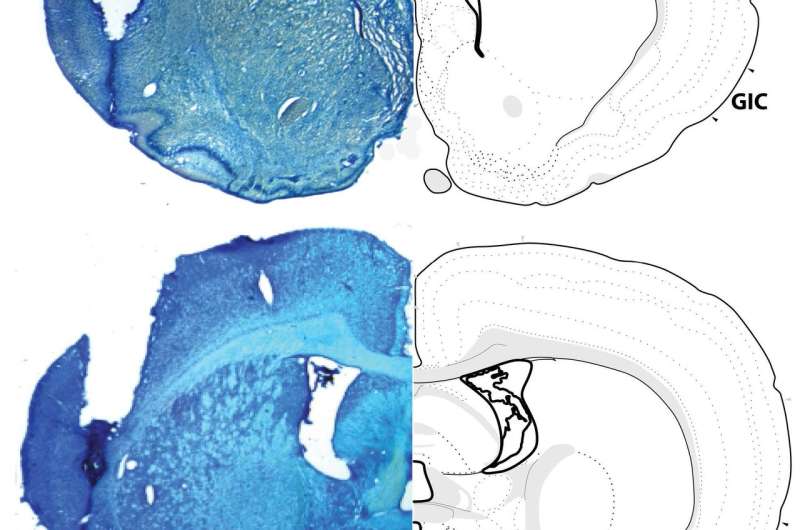Cannabidiol prevents nausea in rats

A non-psychoactive compound derived from marijuana could potentially be developed into new anti-nausea treatments for cancer patients receiving chemotherapy, suggests research in rats published ineNeuro. The study represents an advance in understanding the neurobiology of this distressing symptom that accompanies vomiting but is not effectively treated by current drugs.
Linda Parker and colleagues observed a surge in levels of theneurotransmitter serotoninin the rat interoceptive insular cortex (IIC)—a brain region responsible for nausea in humans—following injection with the nauseating chemical compound lithium chloride. This increase in serotonin and subsequent gaping behavior (a behavior displayed by rodents to flavors paired with a nauseating treatments) was prevented by treatment with cannabidiol—a form of cannabis that does not contain the component found inrecreational marijuanaresponsible for the drug's psychotropic effects. Treatment with a drug that elevates the endogenous cannabinoid, 2-AG, also prevented the elevation of serotonin in the IIC by activating the cannabinoid type 1 receptor.
These findings implicate the endocannabinoid system and IIC serotonin release in the sensation of nausea, opening up new therapeutic opportunities to explore in future research.
更多的信息:Nausea-induced 5-HT release in the interoceptive insular cortex and regulation by monoacylglycerol lipase (MAGL) inhibition and cannabidiol,eNeuro,DOI: 10.1523/ENEURO.0256-18.2018
















